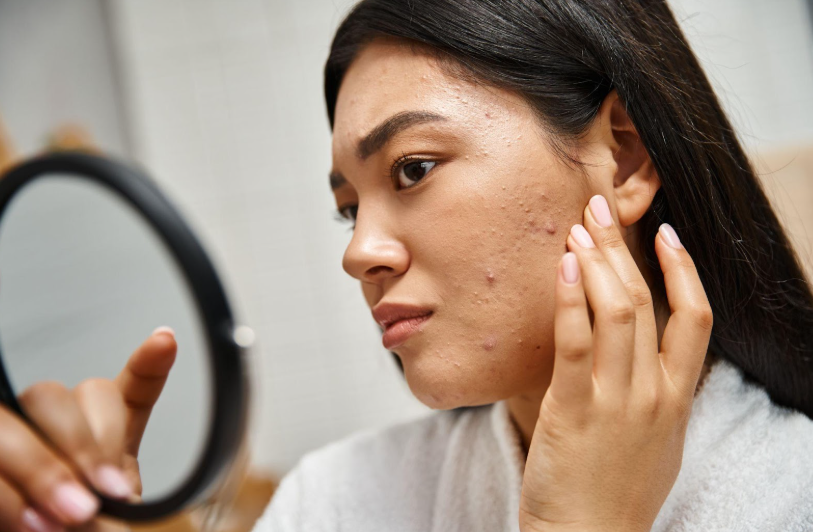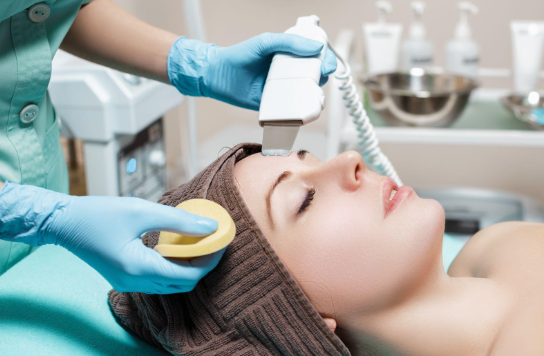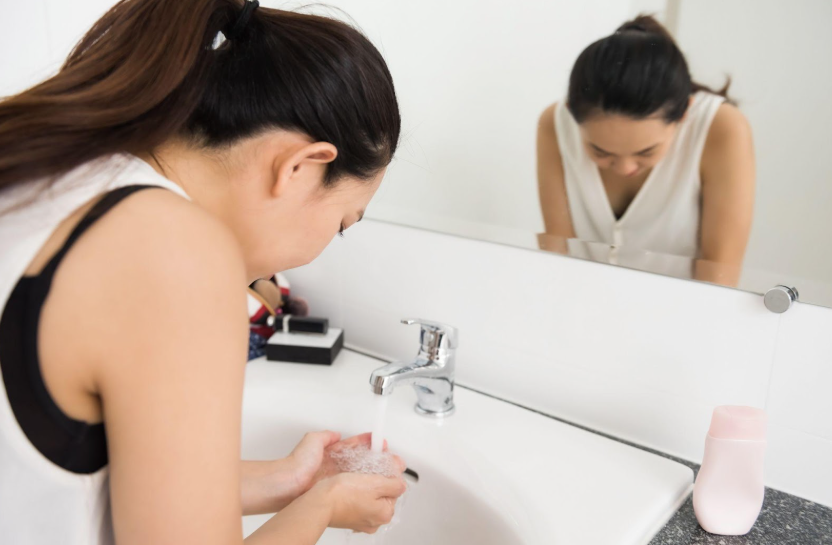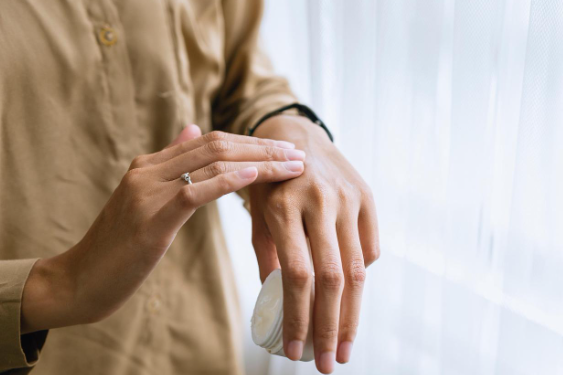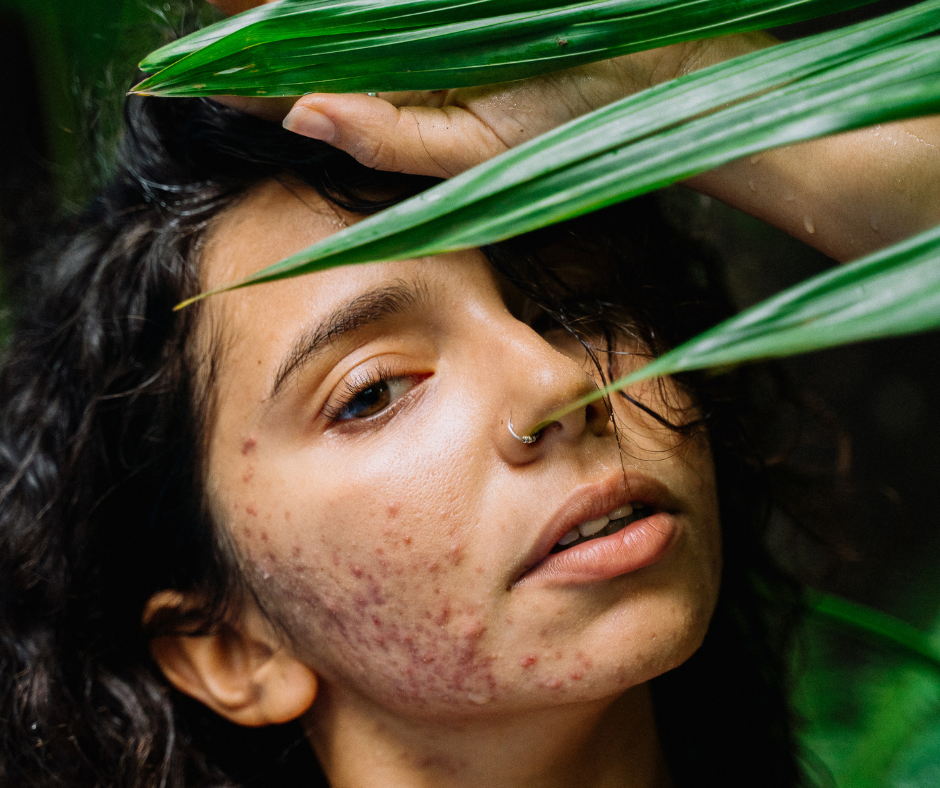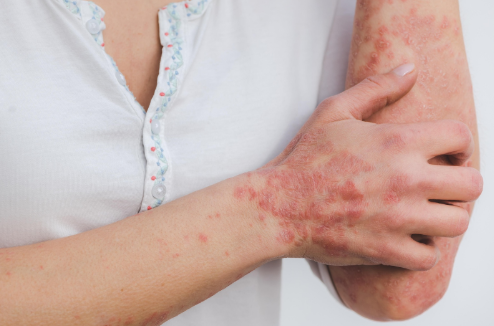Treatment Tips for Dry Skin
Treatment Tips for Dry Skin

You’ve likely felt it in your life: that uncomfortable feeling of tightness, flakiness, and sometimes even itchiness that can make your skin look and feel less than its best. But what exactly causes dry skin, and how do you treat it? Don’t fret because we’ve put together some treatment tips that can help your dry skin regain its moisture.
What Causes Dry Skin?
When it comes to dry skin, there can be many potential underlying causes:
- Cold weather, low humidity, and harsh winds are notorious for stripping the skin of its natural moisture. Even indoor heating can dry out the air, leaving your skin feeling parched.
- As relaxing as they are, long, hot showers and baths can also be a major culprit in causing dry skin. The hot water strips away your skin’s natural oils, which are needed to maintain moisture.
- Using soaps, detergents, or shampoos that are too harsh for your skin can disrupt its natural barrier, leading to dryness. Ingredients like sulfates, which are common in many household products, can be particularly drying.
- As we age, our skin naturally produces less oil, which is why dry skin is more common in older adults. The thinning of the skin also reduces its ability to retain moisture.
- Certain skin conditions, like eczema and psoriasis, can cause extremely dry, flaky skin. These conditions often require specialized treatment beyond just moisturizing.
Treatment Tips for Dry Skin
To help treat dry skin, try these treatment tips:
Moisturize Regularly
Combating dry skin is easy, so long as you can maintain a consistent and effective moisturization routine. Look for a moisturizer that’s rich and creamy, preferably one that contains ingredients like hyaluronic acid, glycerin, and ceramides. These ingredients help draw moisture into the skin and lock it in, preventing it from evaporating.
Apply your moisturizer right after you shower or wash your face while your skin is still damp. This helps to trap moisture on your skin. For extra dry areas, you can layer your moisturizer with an oil or balm to create an additional barrier against moisture loss.
Choose the Right Cleanser
Choose a gentle cleanser that won’t strip your skin of its natural oils, such as those with alcohol, fragrances, or harsh chemicals. Cleansers with these ingredients can exacerbate dryness.
Cream- or oil-based cleansers are excellent choices because they cleanse your skin without leaving it feeling tight or dry. Cleansers with aloe vera, chamomile, or oat extract are also great choices, as the ingredients are very soothing.
Incorporate Hydrating Serums
Hydrating serums are lightweight, water-based products that deliver a concentrated dose of moisture deep into your skin. Hyaluronic acid serums are particularly effective because they can hold up to 1,000 times their weight in water, making them incredibly hydrating.
Apply your serum after cleansing and before moisturizing to maximize its benefits. You can also layer different serums to target multiple skin concerns, provided you apply the thinnest one first.
Use a Humidifier
A humidifier adds moisture to the air, which can be particularly beneficial during the winter months or in arid climates. By keeping the air in your home or office humid, you’ll help prevent your skin from drying out. This is especially important if you use indoor heating, which tends to dry out the air.
Place a humidifier in your bedroom or any other room where you spend a lot of time to keep your skin hydrated throughout the day and night.
Avoid Hot Water
As tempting as it is to take a hot shower or bath, try to use lukewarm water instead. Hot water takes the natural oils away from your skin, which leads to dryness. If you love long showers, try to limit them to 10 minutes or less, and always moisturize immediately afterward.
If you can’t resist a hot bath, add a few drops of moisturizing bath oil to the water. This simple step will help prevent your skin from drying out by locking in moisture.
Exfoliate Gently
Exfoliating removes dead skin cells that can make your skin look dull and flaky, but it’s best to exfoliate gently, especially if you have dry skin. Over-exfoliating or using harsh scrubs can damage your skin’s protective barrier, leading to even more dryness.
Choose a gentle exfoliant that contains alpha-hydroxy acids (AHAs) like lactic acid or glycolic acid. These ingredients help to exfoliate the skin without being too abrasive. Exfoliate once or twice a week to keep your skin smooth and ready to absorb moisture.
Opt for Hydrating Masks
Incorporating a hydrating mask into your skincare routine can give your skin an extra boost of moisture. Look for masks that contain ingredients like hyaluronic acid, aloe vera, and honey, all of which are known for their hydrating properties.
Use a hydrating mask once or twice a week, depending on how dry your skin is. You can also use it as a spot treatment on particularly dry areas like your cheeks, forehead, or around your mouth.
Drink Plenty of Water
Hydration starts from the inside out. Drinking plenty of water therefore keeps your skin hydrated. When your body is dehydrated, it can show up in your skin, making it look dull and dry.
Aim for at least eight glasses of water a day, and consider increasing your intake if you’re in a particularly dry environment or physically active. Adding fruits and vegetables with high water content to your diet, like cucumbers, watermelon, and oranges, can also help.
Avoid Harsh Ingredients
Certain ingredients can worsen dry skin, so it’s important to avoid them if possible. Alcohol, fragrances, and sulfates are common culprits that can strip your skin of its natural moisture, so look for products that advertise that they do not contain such components.
If you have sensitive skin in addition to dry skin, try using products that are formulated specifically for sensitive skin. These products are usually free of irritants and are designed to be gentle on your skin.
Seal in Moisture Overnight
If you’re looking for a great time to give your skin some extra TLC, nighttime is perfect. Before bed, apply a thicker, more occlusive moisturizer or a hydrating overnight mask to lock in moisture while you sleep.
For an extra boost, it is advisable to use a humidifier in your bedroom to keep the air moist. This can help prevent your skin from drying out overnight, leaving you with soft, hydrated skin in the morning.
Limit Exposure to Chlorine
Swimming in chlorinated pools can be incredibly drying for your skin. If you’re a frequent swimmer, make sure to rinse off as soon as you get out of the pool and apply a moisturizer right away.
You might also apply a barrier cream or oil before swimming to protect your skin from the drying effects of chlorine. Look for products that are water-resistant and designed to be used before swimming.
Incorporate Omega-3 Fatty Acids
Omega-3 fatty acids help strengthen your skin’s barrier, keeping moisture in and irritants out. Incorporating foods rich in omega-3s into your diet, like salmon, walnuts, and flaxseeds, can help improve your skin’s hydration levels.
If you’re not getting enough omega-3s from your diet, you might consider taking a supplement. Ask a healthcare professional, though, if you’re planning to start a new supplement regimen, just to be safe.
Try a Hydrating Toner
A hydrating toner can be a great addition to your skincare routine, especially if you have dry skin. Toners help to balance your skin’s pH and provide an extra layer of hydration before you apply your serum and moisturizer.
Look for toners that are alcohol-free and contain hydrating ingredients like rose water, glycerin, or hyaluronic acid. Apply your toner with a cotton pad or gently press it into your skin with your hands for maximum absorption.
Use a Soothing Lip Balm
Don’t forget about your lips! The skin on your lips is thinner and more prone to dryness than the rest of your face. Keep your lips soft and hydrated by applying a moisturizing lip balm throughout the day. Look for balms that contain nourishing ingredients like shea butter, beeswax, and vitamin E.
If your lips are particularly dry or chapped, it is better to use a lip scrub to gently exfoliate the dead skin before applying your balm. This will help the balm absorb better and keep your lips looking smooth and healthy.
Keep Stress in Check
Stress can take a toll on your skin, leading to dryness and other skin issues. When you’re stressed, your body produces more cortisol, a hormone that can cause your skin to produce less oil and become dry.
Incorporating stress-relief practices like meditation, yoga, or deep breathing exercises into your daily routine can help keep your skin in balance. Taking time for yourself to relax and unwind is not only good for your mental health but also for your skin.
Consider Professional Treatments
If your dry skin is persistent and not responding to over-the-counter treatments, you might consider seeking professional help. Dermatologists can offer specialized treatments like prescription creams, light therapy, or even hydrating facials that can provide more intensive relief. They can also help identify any underlying conditions that might be contributing to your dry skin and recommend a treatment plan tailored to your specific needs.
If you want to put dry skin in your past, our team at
Pine Belt Dermatology can help.
Contact us today and say goodbye to dryness; your skin will thank you!
